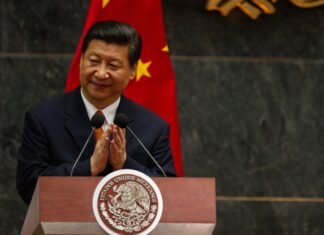The recent decision by the United Kingdom and Portugal to officially recognize the state of Palestine is a significant development, especially in light of upcoming debates at the United Nations regarding the two-state solution. British Prime Minister Keir Starmer emphasized that this recognition aims to support peace efforts, despite opposition from Israel. At the same time, Portugal has confirmed its intention to make a similar announcement, citing the ongoing humanitarian crisis in Gaza and the looming threats from Israel to annex additional territories.
This shift in diplomatic recognition reflects growing international concern over the situation in Palestine and the humanitarian challenges it faces. The Gaza Strip has been under considerable strain, with reports of shortages in essential supplies, disruption in healthcare, and extensive displacement of civilians. Such conditions have prompted prominent nations to reevaluate their positions and extend formal recognition to Palestine as a step toward fostering dialogue and peace in the region.
Keir Starmer’s comments indicate a broader recognition that the path to peace must involve acknowledging the Palestinian statehood aspiration. This recognition from the UK represents a significant political shift and signals potential changes in how Western nations engage with the Israeli-Palestinian conflict. The British government’s stance could influence other countries’ approaches, making them reconsider their diplomatic ties and strategies in light of the pressing humanitarian issues in Gaza.
Portugal’s announcement, which echoes sentiments expressed by other European leaders, underscores that the situation in Palestine cannot be ignored, especially when faced with human rights concerns. By acknowledging Palestine, Portugal aims to shape a narrative that places humanitarian considerations at the forefront of international diplomacy. The reference to Israeli annexation threats adds urgency to the matter, highlighting the real consequences for peace and stability in the region.
Moreover, other nations, including France and Canada, are potentially aligning with this new wave of recognition, indicating a possible shift in international consensus regarding Palestine. As these discussions unfold at the UN, the prospects for a two-state solution—essentially, a peaceful coexistence between Israel and an independent Palestinian state—may gain new momentum. This could encourage a renewed dialogue among parties involved, aimed at finding sustainable resolutions to longstanding grievances.
The recognition of Palestine by the UK and Portugal sets a precedent within diplomatic discourse, emphasizing that global powers are increasingly willing to assert the rights of Palestinians. This could empower the Palestinian cause on the international stage, potentially leading to greater support from other nations grappling with similar dilemmas.
In summary, the decisions by the UK and Portugal represent a critical turning point in international relations regarding the Israeli-Palestinian conflict. As discussions unfold at the UN, it will be vital to monitor how this recognition impacts negotiations and whether it catalyzes a more substantial, collective movement toward peace and stability in the region. The international community is poised to respond, and the coming weeks may prove pivotal in shaping the future of Palestinian statehood and the broader quest for peace in the Middle East.






